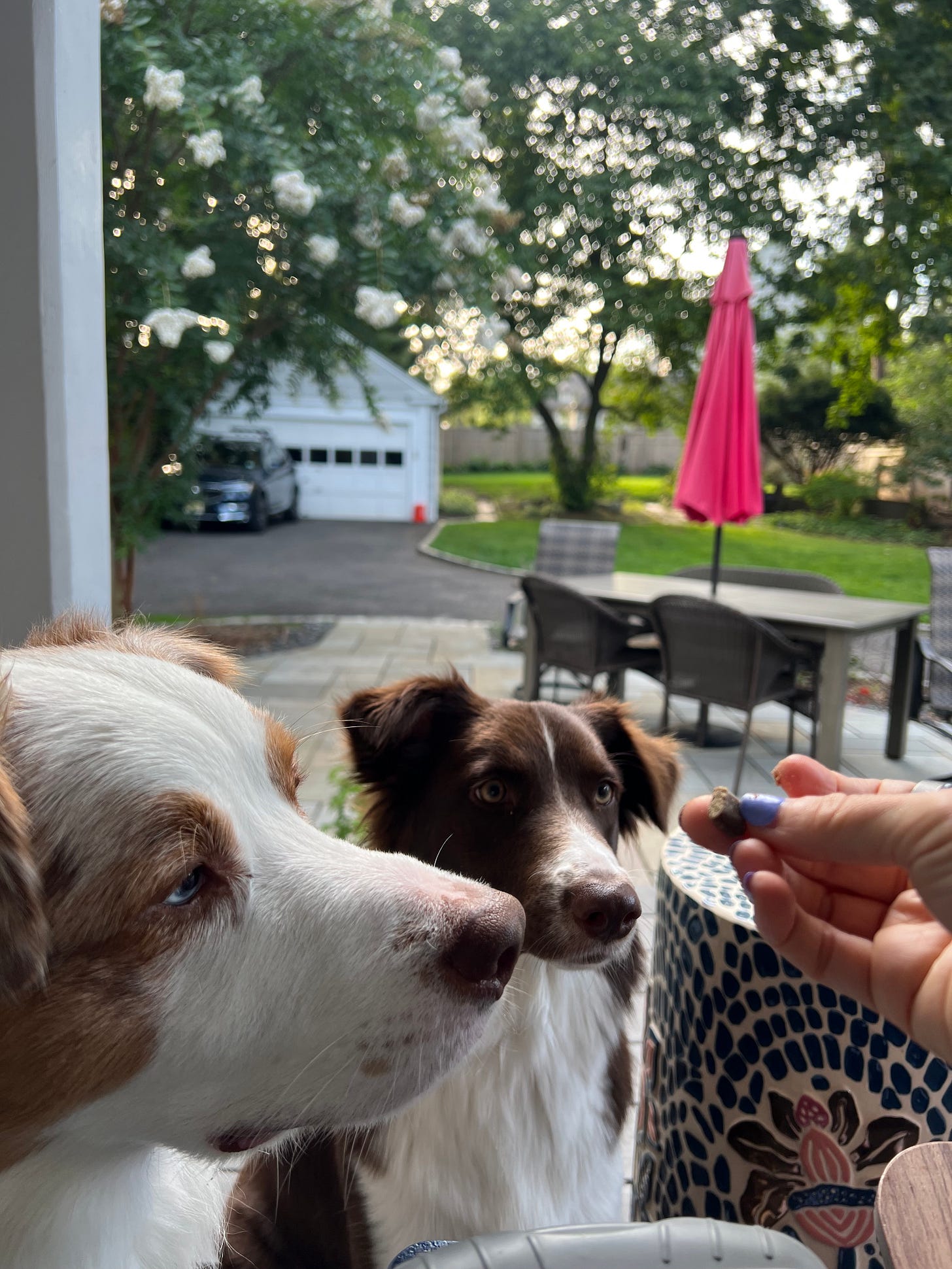Something Sacred
A look at the spiritual self
The Wheel of Satisfaction
Some elements in the Satisfaction Wheel will speak to you more than others. Last week, I focused on Love. This week, we’re looking at SPIRITUALITY. Remember, these posts are in conjunction with my newsletters. Sign up here if you would like more!
Spirituality
Spirituality has been “linked with better health outcomes” and overall mental health in studies (Harvard). People with spiritual practices tend to experience overall positive effects such as a sense of hope, less depression, and higher self-esteem (WebMD).
Spirituality and sacred practice can call to mind many possibilities. Incense and chants. Tarot and crystals. Holy books and hymns.
But hold on.
For my dear readers who don’t go for any of those, please take a pause on the eye-rolling. Please pause your mental narrative that says, “I don’t have any sacred practices, thank you very much Skye, you hippie.”
Because sacred practices can be almost anything. They are the routines and rituals of your life that are meaningful to you because they make you feel lighter. Even if you don’t contemplate spirituality while doing them, they matter. Your morning coffee routine. Your workout. Hiking. Reading to your children.
The things you do because they make you sparkle. Are they not sacred?
It’s important to note that spirituality and religion are cousins, not synonyms. One can be spiritual but not religious. Indeed, I think it’s fair to say one can be religious but not spiritual. But that’s veering into conjecture. Spirituality addresses the spirit, the non-corporeal part of us. Our emotional heart, if you will. For many, religion is the path to spirituality. For many, religion is a barricade to knowing your spiritual self. I’m not here to tell you which path should be yours. My question is, how do you honor your spirit?
Religious Background
I grew up in (protestant) church. A fairly progressive church, thanks to the pastor. I also went to a religious elementary school. The church it was affiliated with wasn’t as open, and teaching religion to children very often requires teaching rules. Black and white, good and evil. Do and don’t you dare.
Something that I think even my parents don’t know? A lot about religion scared me. Like, a lot.
Start with the teachers who told me I’d not live to be 18 because Jesus was returning on 1/1/2000. The entire book of Revelation was terrifying. The idea of hell, of going there because I said a bad word or was mean to my sister, gave me nightmares. So much darkness.
As a child, religion was a set of rules that I had better follow or else. I did not see it as a way to connect with God. But it also wasn’t all fear and punishment. I loved youth group and summer Bible camps. I even went to a revival once with a friend. That church was more traditional–mine didn’t do revivals–but it surely was exciting. Worship, in a large group or with my family, was definitely uplifting.
Religion can be many things. Anytime a group of people come together for a common cause, a spectrum of outcomes results. Joy, unity, and empowerment get mingled with egos, agendas, and personal interpretations. That’s okay. If religion gives you the connection you need, if it helps you think about your place in this world and your purpose with hope, then awesome. For you. By that I mean, please respect that it’s not for everyone.
Sacred Practice
Organized religion aside, how do you nurture your heart and intuition? What are your sacred practices?
You don’t have to call it a soul to nourish your being. You don’t have to believe in a higher power to connect to your intuition. And you certainly don’t need to know John 3:16 to appreciate the value of connecting to others.
But if you’re ignoring your emotional heart altogether, maybe it’s time to start thinking about your spiritual practice. If you’re pushing through your days entirely in your body and logical head, then you’re ignoring a very real part of you. Your purpose for being matters. Even if we are no more than a body on this earth, you can still get in touch with what lights you up. Makes you feel connected, confident, and purposeful. You can still honor the sacred, unique being that is YOU.
What do you think?
Your Turn!
How do you define spirituality?




I certainly wouldn't call myself religious, and I'm on the fence about calling myself spiritual...but what you said about certain daily routines or things you love to do being able to fill that space definitely connects with me. When I go hiking (like I am now!) and am just by myself with my thoughts and able to let go of the things that bother me and connect to nature, I definitely feel lighter and more hopeful. So perhaps that's where my spiritual energy goes!